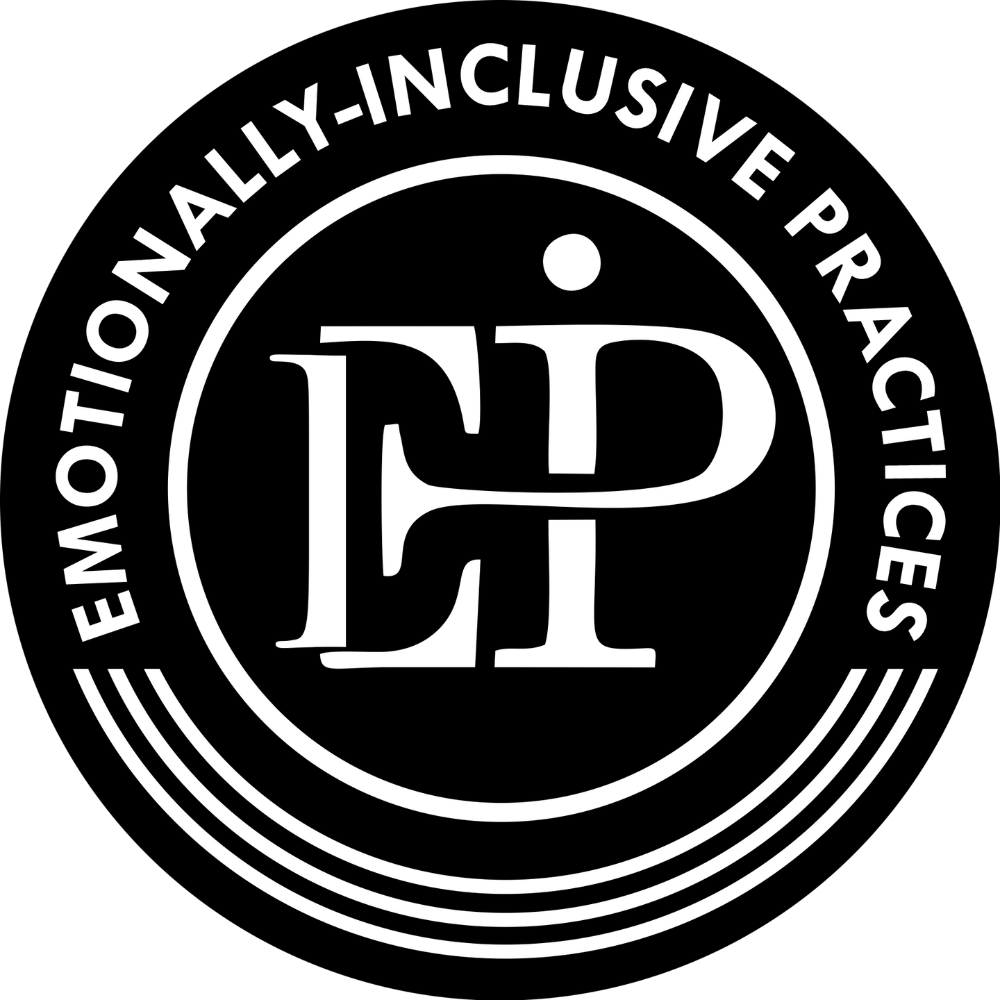Emotionally-Inclusive Practices
Learn this practical, skill-based framework empowering leaders, teachers and staff to transform their classrooms and school communities.

An Integrated Approach to Creating Equitable School Environments
Learn how to integrate emotional intelligence into every part of the education experience for ALL students.
GET EMPOWEREDAn Integrated Approach
Emotionally-Inclusive Practices (EIP) Framework
Emotionally-Inclusive Practices is a framework used to integrate emotion into every part of the educational experience. Emotions lay the foundation for behavior that ground us in how we see the world and respond in our everyday interactions. Developing the emotional intelligence of adults and children across our implicit bias, culture consciousness, and understanding student and our own trauma give us the awareness and skills to create restorative communities that prioritize all relationships.
- Practice 1: Emotional Intellegence/SEL
- Practice 2: Restorative Community
- Practice 3: Unbiased
- Practice 4: Cultural Consciousness
- Practice 5: Trauma-Sensitivity
- Practice 6: Equitable
Note: Emotionally-Inclusive Practices can be provided as a comprehensive 1 day or 2 day training.
Empower, Inspire, Educate
Participant Outcomes:
- Increase the emotional intelligence of faculty, staff, and students
- Improved classroom management
- Dramatic reduction in office referrals
- Improved sense of community and belonging by students and teachers
- Increase in academic outcomes for students
- Decrease in trauma-related behaviors
- Improved teacher satisfaction and retention
- Improved peer-to-peer and student-teacher relationships

Through our EIP framework you could…
- Create a more equitable, safe and inclusive learning environment
- Empower adults to use their newfound awareness to champion student learning
- Create emotionally-safe spaces for ALL teachers and students to THRIVE
Emotions lay the foundation for behaviors that ground us in how we see and respond to the world each day. We cover it all in the EIP professional learning.
What's Included in the EIP Professional Learning...

PRACTICE 1
Emotional Intelligence
Participants learn to develop the ability to understand, manage, and use their emotions in a proactive and positive way.
Emotional Intelligence is the ability to understand, manage, and use your emotions in a proactive and positive way to build, maintain, and repair relationships. When a person has developed the skill of emotional intelligence they are able to use knowledge of their emotions to manage stress, communicate effectively, and support the emotional needs of others. Emotional intelligence is comprised of four competencies.

PRACTICE 2
Restorative Community
Participants will learn the skills necessary to build, repair, and enhance relationships within a collaboratively designed community.
A Restorative Community is a collaboratively designed community that uses emotional intelligence to build shared leadership, implement proactive accountability and build, repair, and enhance relationships when expectations have not be met.

PRACTICE 3
Unbiased
Participants will develop an awareness and understanding of implicit bias and learn skills and strategies that address hidden prejudice, stereotyping, and unfair treatment.
An unbiased community is one where all stakeholders have been provided the opportunity for deep reflection and investigation to ensure their implicit bias doesn't negatively impact the community. This includes being educated and then taking that learning to explore, evaluate, and execute proactive strategies.

PRACTICE 4
Cultural Consciousness
Develop an awareness and understanding of culture and learn skills and strategies that create belonging (diversity & inclusion) in the classroom.
The process of developing an awareness of culture in oneself, resulting in an increased understanding of culture and deeper cultural knowledge about other people and contexts, is known as cultural consciousness. - Encyclopedia of Diversity in Education

PRACTICE 5
Trauma-Sensitive
Develop an awareness, and understanding of trauma and learn skills and strategies that create safety, vulnerability, and support.
A trauma-sensitive school and classroom uses knowledge of emotional intelligence and trauma to create the conditions that allow students to feel safe, included, and have a sense of belonging.

PRACTICE 6
Equitable
Participants will develop an awareness and understanding of equity, define equity as a community, and develop the processes and systems that ensure equity for all stakeholders.
Creating an equitable educational environment ensures that all stakeholders from principal to parent receive what they need to be successful in their role in the school community. Data is a key driver in investigating current conditions compared to desired outcomes.
Contact us for more information.
12125 E. 65th St.
Indianapolis, IN 46236
317.855.8610
Dr. Brian Dinkins
Chief Executive Officer
[email protected]
317.985.9851
